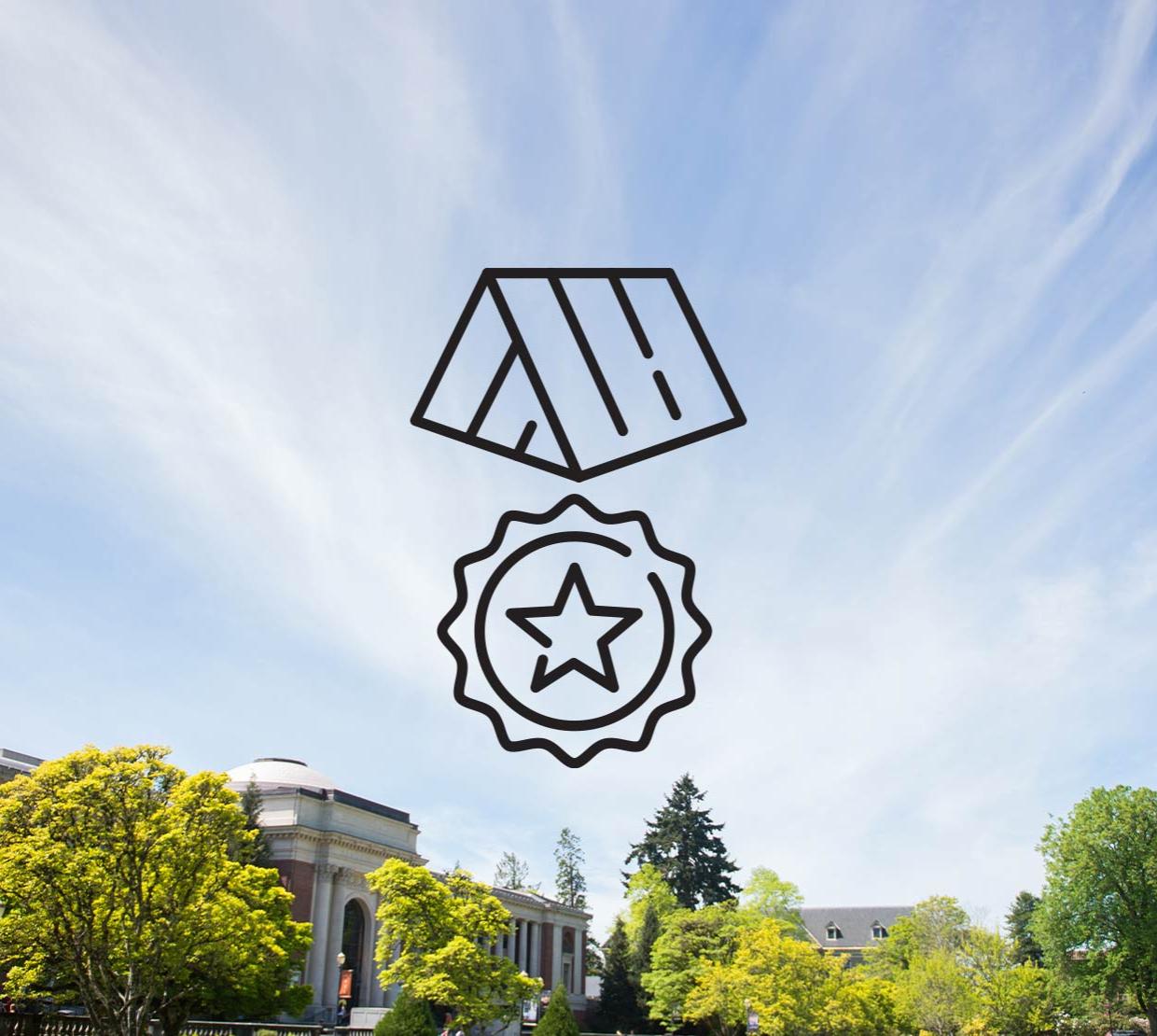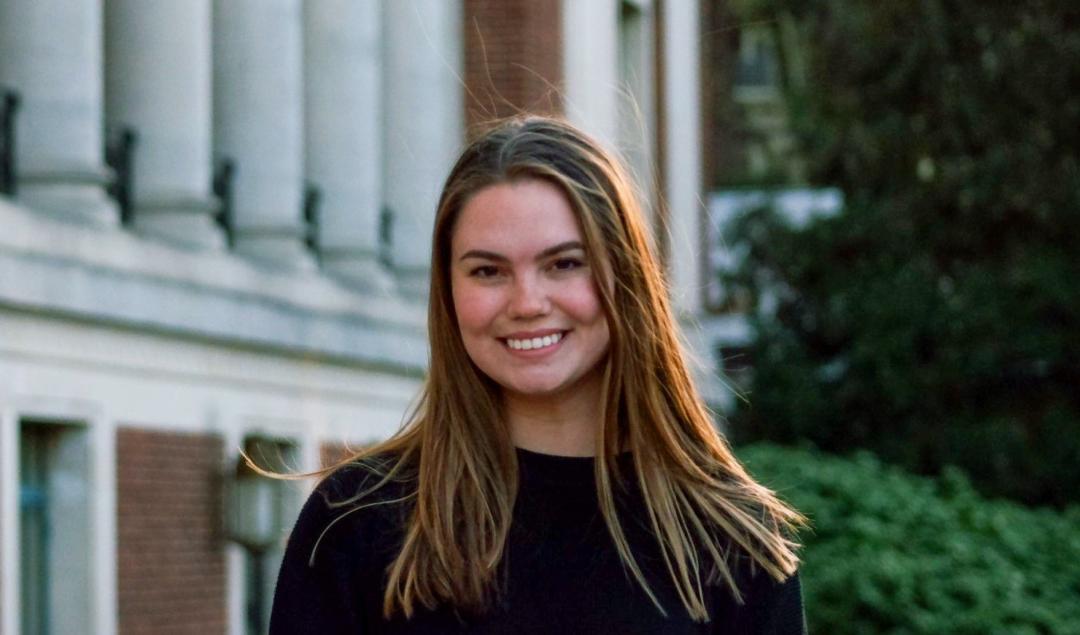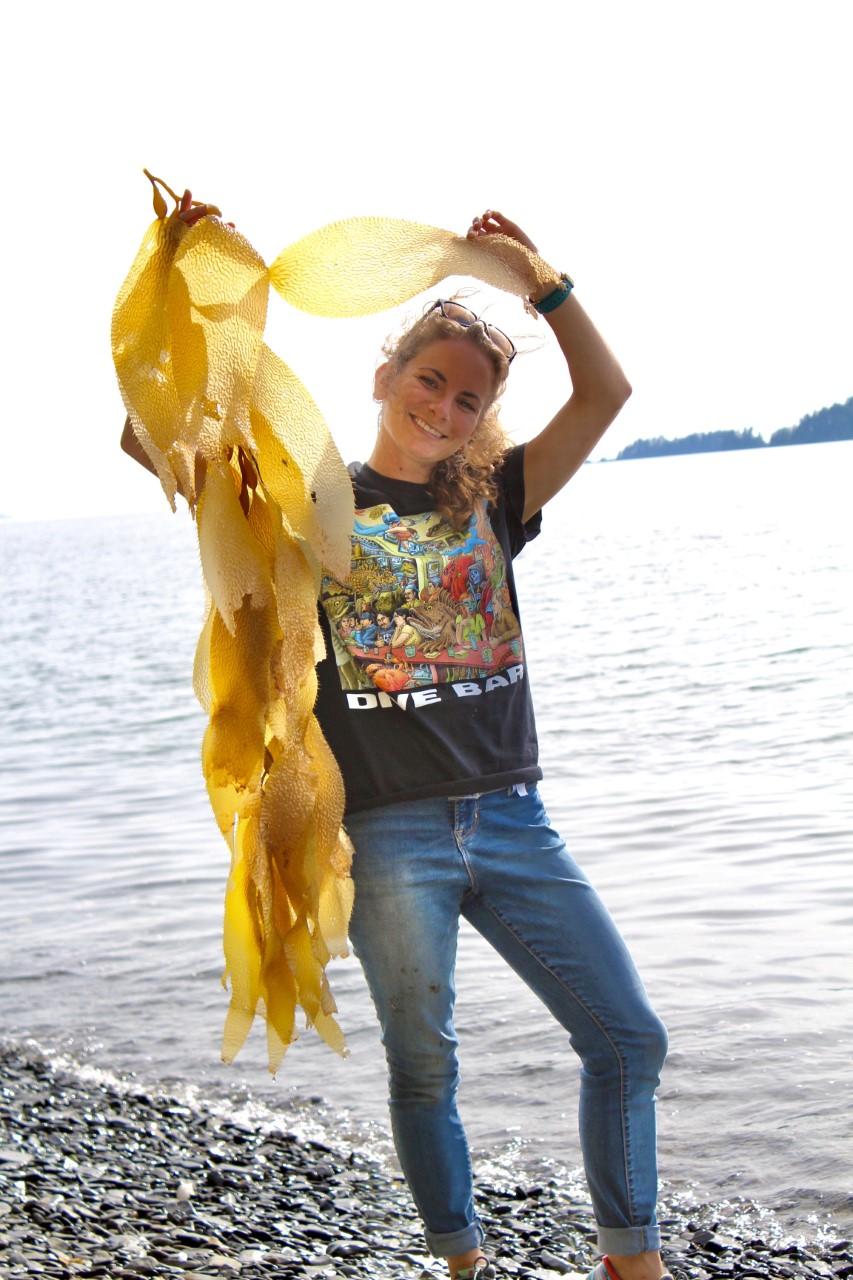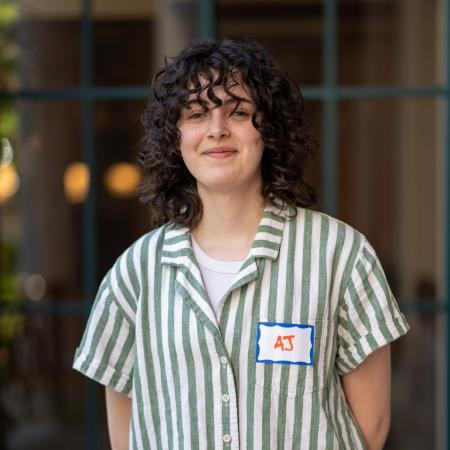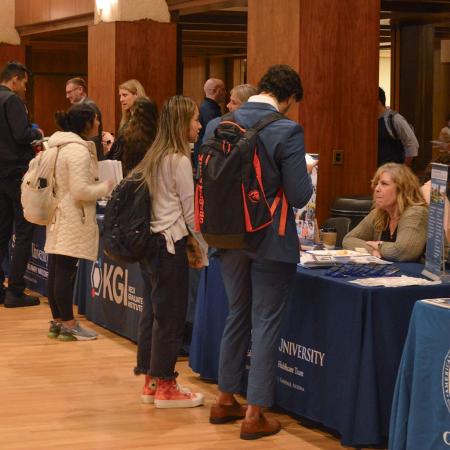Before she started investigating the biochemistry of hibernation in small mammals, Maja Engler had acquired a deep familiarity with the natural world, a taste for cultural diversity and the ability to learn and adapt in different cities of the world. With her family, Engler spent her childhood living in Norway, Montana, Rhode Island and Wyoming. Engler’s time in a small mountain town in Wyoming was particularly memorable. Cowboys and bighorn sheep were a common sight. Her father taught her the names of local plants in Norwegian and English and as a child she learned to recognize the ancient symbols of native Indian cultures in the natural landscape.
“Receiving the Fulbright grant is an honor that celebrates all of my hard work and aspirations."
Fluent in Norwegian after residing for three years in Norway, Engler also lived in Kentucky before moving to Sandy, Oregon, from where she would complete her final year of high school, graduating as a valedictorian. After calling many places home, Engler also found a home at Oregon State.
“I quickly found a home with the Honors College and the College of Science. However, it took me a lot of trial and error to find a career path that I was passionate about,” writes Engler in her application.
Her journey as a scientist took off in earnest when Engler got an opportunity to join the research team of Matt Andrews, former OSU professor of biochemistry and biophysics, at the end of her sophomore year. Andrews, a pioneer in the application of hibernation science to human medicine, works in the development of hibernation-based methods to prolong the storage time of organs used for transplantation.
In Andrews’ lab, Engler discovered her passion for biomedical research. She investigated the molecular mechanisms of hibernating ground squirrels, carrying out cell culture tests to prepare an optimal solution for long-term organ storage using mammal models, such as swine kidneys, that are similar to human kidneys.
Engler received an internship offer from the NASA Kennedy Space Center, which was unfortunately cancelled due to COVID-19. She has won multiple awards to support her research endeavors at OSU and beyond. These include the Cripps Undergraduate Research Experience Fellowship in the Department of Biochemistry and Biophysics, the Oregon State University Retirement Association Scholarship and the Oregon Space Grant Consortium Undergraduate Scholarship.
In Germany, Engler will deepen her knowledge on the physiology of hibernation and its potential biomedical extensions in the lab of Dr. Annika Herwig at the University of Ulm. Herwig's lab is the only one of its kind in the world studying brain-based mechanisms controlling winter polymorphism in animal models. Engler will pursue research on populations of Djungarian hamsters who have the ability to undergo a series of beneficial adaptations in winter that reduce their energy expenditure and enhance their chances of survival and successful reproduction in the spring.
“The knowledge of these mechanisms can thus be used to, for example, identify the pathways involved in long-term body weight control, or to research the possibility of putting astronauts in hibernation during space travel,” said Engler.
She is also interested in coaching local youth soccer teams to build international relationships. Engler is excited about exploring an important part of her family history. Her great-grandparents immigrated from Germany in the 1890s and she hopes to use her time in the country to establish “a personal connection" of her own.
“Receiving the Fulbright grant is an honor that celebrates all of my hard work and aspirations. I am so excited to make strong connections and discover new perspectives within my field of science in Germany, a country known for its commitment to promoting global citizenship,” Engler said.
After completing her Fulbright fellowship, Engler will begin her Ph.D. in biochemistry focusing on hibernation research at the University of Nebraska in the lab of Matt Andrews, her former undergraduate research mentor. Her goal is to work for a space agency to carry out research on how to put astronauts into a hibernation-like state for safer and more efficient space travel.
